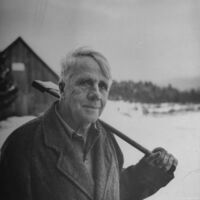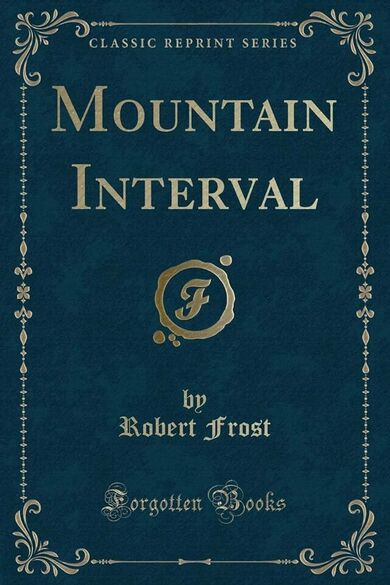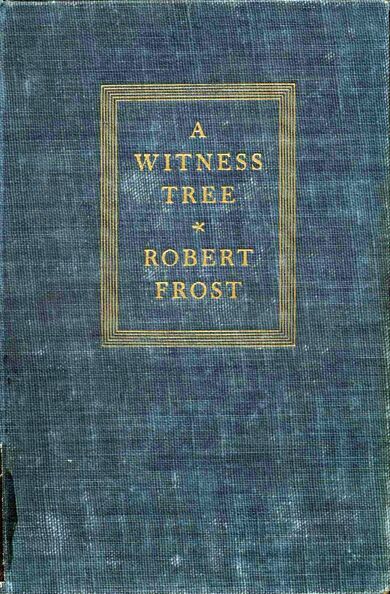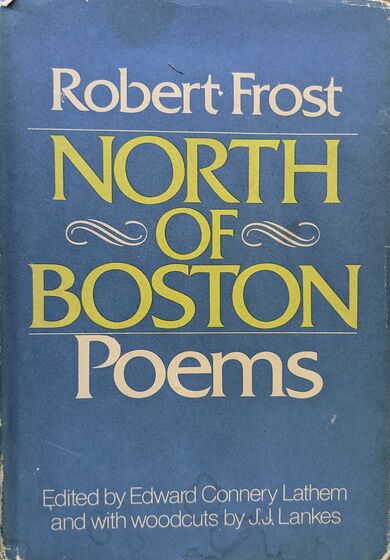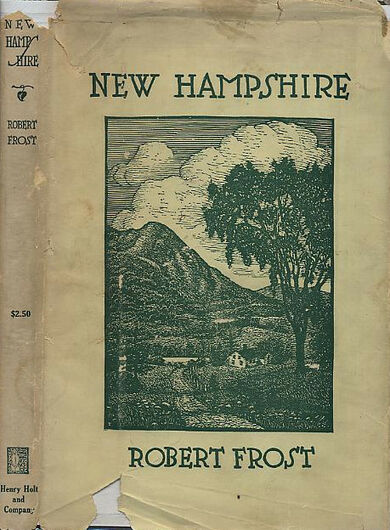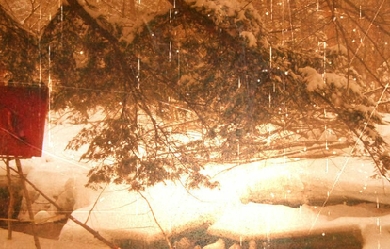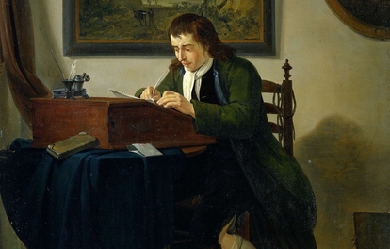The Hill Wife
Yvor Winters
"The Hill Wife" is a less happy specimen than the poems just mentioned. It deals not with a personal experience of the author, but with a dramatic situation seen from without; and the dramatic crisis is offered as something incomprehensible. The wife leaves her husband because she is lonely on their back-country farm, but there is no clear understanding of her motive; we are told that she is disturbed when the birds leave in the fall, and frightened by a casual tramp, and that a pine near the window obsesses her thoughts. The last section, characteristically entitled "The Impulse," describes her final act as a sudden and unpremeditated one. The poem has an eerie quality, like that of dream or of neurosis, but it has little else. As a study in human relationships, it amounts to nothing, and one has only to compare it to "Eros Turannos" by Robinson to discern its triviality. "The Bearer of Evil Tidings" deals with a similarly casual and sudden decision, although it is a more interesting poem. And one might mention also the poem from A Witness Tree entitled "A Serious Step Lightly Taken": the serious step in question is merely the buying of a farm; but the title is characteristic, and the title implies approval and not disapproval—it implies that serious steps ought to be lightly taken. But if serious steps are to be lightly taken, then poetry, at least, is impoverished, and the poet can have very little to say. Most of the world's great poetry has had to do with serious steps seriously taken, and when the seriousness goes from life, it goes from the poetry.
From The Function of Criticism (1957)Katherine Kearns
In "The Hill Wife" the woman "sees" nature as alluring and threatening, and she states her fears so convincingly that the tone subverts any rational, fearless response on the reader's part. The birds, the tree, the window, the stranger - all become portents, as ominous a "design" as nature's compiling of white spider, white moth, and white Heal-all in "Design." The Hill Wife implies that a man and woman who loved each other enough would not have to care so much when the nest-building birds came and went around their house. Their marriage is sexually empty, a deficiency reflected in her own empty "nest." The childless house is a frightening, vacant-seeming place. They dread going inside after an absence, "preferring the out- to the in-door night." Like the birds in "driven nests," they rattle their door to drive out whatever has settled there, and by analogy, they are the intruders. Their bedroom is haunted by a "dark pine that kept / Forever trying the window-latch." The tree has "tireless but ineffectual hands" that in waking hours seem "as a little bird / Before the mystery of glass." The symbols merge and conflate, with the husband and wife like birds, with the tree like a bird but also like a man or a woman with "tireless," dangerous hands, with the threatening stranger in the woods like the dark tree tapping at the bedroom window. The whole tenuous asylum depends on closed doors and unbroken windows, but like the other women for whom nature is an objective correlative, the Hill Wife dreams that the barrier between their bedroom and the outdoors is threatened by the tall pine: "And only one of the two / Was afraid in an oft-repeated dream / Of what the tree might do." The ominous tone suggests sexual violation, the "tireless" and hungry hands of the tree seeking and finding the woman in a nightmarish recapitulation of the beggar whose hands she propitiates with food. Or perhaps she dreams, with the same ambivalent fearfulness, of what the tree might do to her husband. If tireless female hands were to find the man, at least as the wife dreams it, they might seduce him out into the night, where he cannot perform the gestures of control - the furrowing of field and felling of trees - that keep nature at bay. Either way, the woman performs the opposite function to her farmer-husband's, for her internal and external landscapes merge, and the wildness in her nature allows her to see nature as wild and alluring. It is a small step from "preferring the out- to the in-door night" to rejecting the asylum of household completely. She disappears into the ferns and is never seen again, becoming quite literally a "hill wife," subsumed into nature, married to it.
From Robert Frost and a Poetics of Appetite. Copyright © 1994 by Cambridge University Press. Reprinted by permission of the author.
